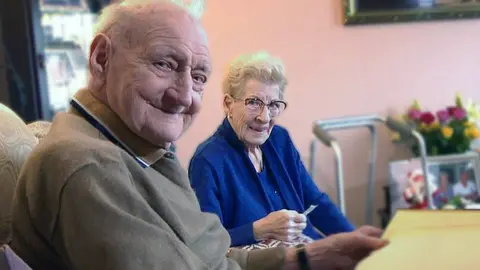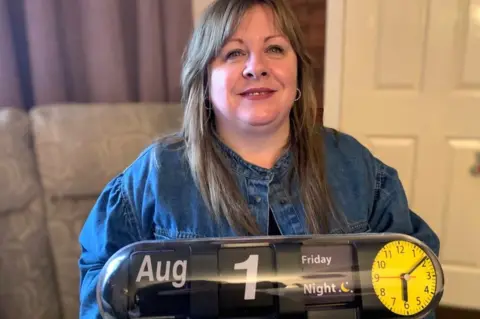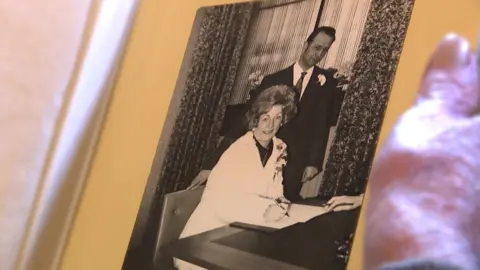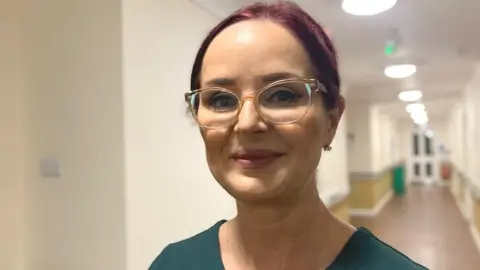Dementia diagnosis made our time more precious after 50 years
Harry and Ann Roger have been married for 50 years.
The Broughty Ferry couple met at the Timex watch factory in Dundee - where Harry worked as an electrician and Ann was employed in the polishing shop.
Time has been a feature throughout their lives together but it has now become more precious than ever.
This year, 91-year-old Harry was diagnosed with vascular dementia, one of about 90,000 people living with dementia in Scotland.
The pair have been getting support through a scheme run by Dundee Health and Social Care Partnership.
Like many authorities, it has been implementing new recommendations for assessing, caring and supporting people living with the disease.

Healthcare Improvement Scotland published new guidelines in November to improve care in all settings - including home care, long-term care, care homes, hospitals, hospices, day care centres and primary care.
The support helps Harry and Ann remain in their home, and gives them co-ordinated support through a link worker who can put them in touch with a range of services.
Ann - who is 83, said the pair had been inseparable since they met more than 50 years ago.
"We went to the Palais on a Saturday night and he asked me to dance," she said.
"And I said yes - and that was it."

Since Harry's diagnosis, she has had help to look after him from Gaynor, their link worker.
She has come in to tell him about some gadgets to help him. She shows him a clock that tells him what day it is and if it's day or night. And a special simplified remote control for the TV.
Harry said: "I could sit on the chair and watch the TV and nod off.
"Sometimes I waken up again and it's dark out there. There's a lot to try and sort out."
Ann added: "With the TV, it's all right if I am here to fix the controls but if he's on his own it gets a bit confusing. Even if I am upstairs, Harry forgets I'm still upstairs."

Dundee is the area with the highest proportion of people diagnosed with dementia in Scotland.
The link workers here know all the local services available and can best meet their clients' needs.
The aim is to allow people like Harry to keep living at home - and to encourage those that can get out to join in social activities like crafting or music.
Lynn Flannigan, senior improvement adviser at Healthcare Improvement Scotland said: "We produced 67 recommendations across six key areas of practice from diagnosis to end of life care.
"They offer a real opportunity for organisations to keep what they are doing well but also to find areas for improvement.
"I would hope to see people having a timely diagnosis and then having good, robust, person-centred care after.
"All of the services working together to co-ordinate their needs as the dementia progresses, so people can stay in their own homes for as long as possible."

Susan Banks from Dundee Health and Social Care partnership also said the goal was for people to stay in their own homes.
"We encourage people to go to the dementia choir, to go to the walking groups, to engage in anything out there that will be good for them to not just be mentally stimulated but physically active too.
"To have that sense of belonging and to have that sense of purpose, because that puts less pressure on services in the future."
She said her team was going into communities and raising awareness of dementia.
"We are making this everybody's business, breaking down barriers and the stigma attached to a dementia diagnosis, " she said.
